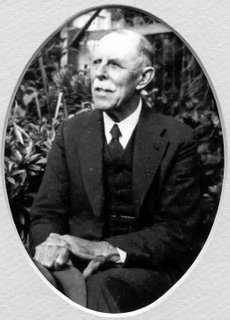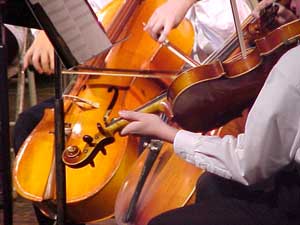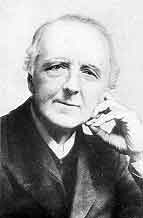 The Will to Grow
The Will to GrowApproaching a new season of the year we take stock of things. Are we getting on? Are we advancing? Are we growing? And with that question of growth another query starts to life. Has anybody elaborated the laws that govern mental growth? When does such development cease? By what rules is it regulated? Why, in some cases, does the body leave the mind so far behind whilst, in others, the intellect continues to expand long after physical growth has ceased? Some years ago Sir William Osler, one of the most eminent professors of medicine that the world has ever known, was particularly fond of discussing such subjects with his students. Sir William was concerned less with the academic than with the practical aspect of the matter. He was desperately anxious that the young medicos under his charge should regard the capture of a diploma, not as the climax of mental development, but as a mere beginning.
As everybody knows, the human adds little or nothing to its stature after attaining its majority. Rich or poor, sickly or strong, men and women of all kinds, classes, colours, and conditions come to the age of twenty-one and cease to grow. But the human mind scorns such hard-and-fast regulations. After a brief period either of lightning or languid growth it may become suddenly stunted and grow no more; or it may continue to develop with steadfast and irresistible persistence until the hair is white and the back bent with age. Is it not on record that:
Cato learned Greek at eighty;
Sophocles
Wrote his grand oedipus, and
Simonides
Bore off the prize of verse from his
compeers.
When each had numbered more than four-score
years;
And Theophrastus at four-score and
ten
Had but begun his "Characters of
Men."
Chaucer at Woodstock, with the
nightingales,
At sixty wrote the "Canterbury
Tales."
Goethe at Weimar, toiling to the
last,
Completed "Faust" when eighty years were past.
And yet in contrast with all this there are those who, however long they live, never show any sign of mental progress after leaving school or university.
Send The Patriarchs Back To The Playground
The question inevitably arises: What are we to regard as normal? At what age does intellectual development usually cease? Sir William Osler would have replied that it should not cease at all. In season and out of season, he urged his students to guard against such a calamity. He advised doctors to take every opportunity of renewing their student days. General practitioners should return, as often as possible, to the university classroom and to the hospital ward. Old doctors should get into touch with young beginners fresh from college. Any opportunity of travel should be eagerly embraced. New hobbies should be taken up. No opportunity should be lost of keeping the brain fresh and keen and vigorous. Minds should grow to the very last.
In his lecture on Bassett, Osler hints that, in this respect British doctors have something to learn from their brethren across the Channel. Nothing impressed Bassett more than the incessant industry, even in old age, of the French physicians. And in all his lectures, Osler pours out the vials of his wrath upon those practitioners who, after a few years, divide their patients into about a dozen classes, applying in each case one or other of a dozen stereotyped prescriptions. Such a man has lost the rapture of his calling; he has sacrificed the joy of living; he has become the victim of ruts and routines. In a word, he has committed intellectual suicide! He has ceased to grow. And the trouble is, of course, by no means confined to the distinguished profession of which Sir William Osler was so conspicuous an ornament.
The Men Who Command The Sun To Stand Still
When is a man most in danger of allowing growth to cease? Lord Morley thought that it is in the early thirties that the average man is most tempted to surrender his birthright. In his able analysis of the character of Voltaire, Morley speaks of the thirty-third year as "that earlier climacteric when the men with vision first feel conscious of a past and reflectively mark its shadow. It is then that they either press forward eagerly with new impulse in the way of their high calling, knowing the limitations of circumstance and the hour, or else, fainting, draw back their hand from the plough, and ignobly leave to another or to none the accomplishment of the world." Lord Morley urges men at that critical climacteric not to tremble beneath this grey and ghostly light, but, taking a renewed hold upon life and thought, to make the crisis the precursor of a long, industrious day. Osler, in warning his students of the approach of such a climacteric, was discreetly silent as to the exact period at which such a crisis could be expected.
In the same connection, the professor emphasised the fact that the brilliant findings of Koch in relation to the tuberculosis bacillus, and of Lord Lister in connection with, antiseptics, were acclaimed almost exclusively by the younger men. Growth, in the physical realm, is not a matter of volition; in the intellectual realm it is. Such, tragedies as these need not have occurred and should not have occurred. In the somewhat grotesque literature of epitaphs there are few records finer than the inscription on the tomb at Mentone of John Richard Green, the historian: "He died learning." "If there is anything of interest in my story," writes Mark Pattison in his memoirs, "it is as a story of mental development. I have never ceased to grow, to develop, to discover, up to the very last. While my contemporaries, who started so far ahead of me, fixed their mental horizon before they were thirty-five, mine has been ever enlarging and expanding. Slow as the steps were, they have all been forward." The words seem to smack of a certain smug self-satisfaction; but they were written in old age; and when old age can truthfully make so proud a claim, it may be pardoned for finding the achievement an occasion for some little self-congratulation.
F W Boreham
Image: Boreham in his 80s
This article also appears on the This Day With F W Boreham site---(18 August entry)







